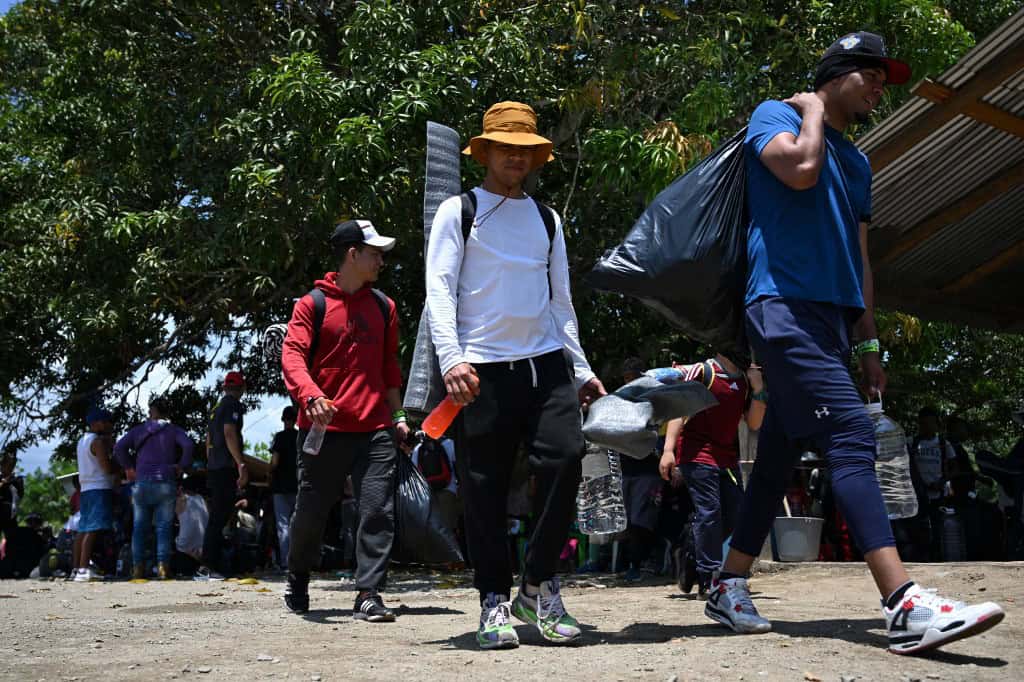The foreign ministers of about twenty American countries will meet in Guatemala on Tuesday to discuss strategies to address the migration crisis in a concerted manner, in a conclave whose star figure is the head of U.S. diplomacy, Antony Blinken.
The purpose of the meeting is to coordinate “strategies to be able to deal with this phenomenon of migration in an integrated and collaborative way,” said its host, Guatemalan President Bernardo Arévalo.
Blinken “will highlight our progress over the past two years and foresee next joint steps to strengthen humane migration management,” State Department spokesman Matthew Miller said. The Secretary of State will also meet with Arévalo and other Latin American officials, he added.
Some 2.8 million migrants enter the United States irregularly each year, putting great pressure on Democratic President Joe Biden, who is seeking re-election in the November election, as he is accused by Republicans led by Donald Trump, his rival in that election, of doing nothing to end the problem.
“President Biden knows that here he has to reinforce the locks and put seven keys on the door because his re-election depends on it,” said Guatemalan analyst and academic Renzo Rosal.
Central America also faces the burden of hundreds of thousands of migrants, mostly Venezuelans, who travel through the isthmus to the United States after walking through the inhospitable Darien jungle, bordering Colombia and Panama.
The avalanche of migrants generates security problems in Central America and forces governments to allocate resources to assist them, although in South America there are also countries, such as Colombia, Peru and Chile, where the exodus of Venezuelans causes challenges to their authorities.
The meeting will be attended by the foreign ministers or other senior officials of the countries that signed the Declaration on Migration and Protection in the U.S. city of Los Angeles, within the framework of the 2022 Summit of the Americas.
The migration issue is also a core part of the new relationship of understanding between the United States and Guatemala since Arévalo took office in January.
In recent weeks, Blinken has spoken with the foreign ministers of Mexico, Alicia Bárcena, and Guatemala, Carlos Ramiro Martínez, in search of a joint proposal for this conference, Arévalo said, without giving details.
Concrete Measures
More than half a million people, mostly Venezuelans, crossed the Darien jungle in 2023, where criminal gangs operate that rob, rape and kill migrants.
Among the migrants arriving in the United States there are also thousands of Central Americans, who leave their countries to escape poverty, lack of employment, low wages and criminal violence.
“No country alone can solve this,” said Marcela Ríos, director for Latin America at International IDEA, an intergovernmental organization made up of 35 states that promotes democracy.
However, “the conference must come up with concrete measures, commitments and budgets” and not mere declarations of good intentions, Ríos said, a former Minister of Justice and Human Rights of Chile.
Neither walls nor trenches
Experts agree that tightening regulations will not stop migration. “Punitive measures are not going to stop the migratory flow,” said independent Guatemalan analyst Luis Linares.
“Those who think that putting up walls or trenches or fences solves the problem do not understand that it is a much more complex problem that needs to be addressed comprehensively by all countries, but also with international organizations,” Ríos said.
What if Trump wins?
Linares views the hemispheric conference with some skepticism, which will be held at the National Palace of Culture in the Guatemalan capital, as he believes that progress will fall into a void if Trump returns to the White House.
“Any agreement reached will be modified or displaced [by Trump] and there will be a tougher containment-repression policy from the United States,” the analyst said. “As long as they do not generate more job opportunities, young people, finding no employment, have migration as their only goal and possibility,” Linares added.
Along the same lines, Ríos said that “northern countries must contribute to financing [programs] to overcome social and economic crises [in Latin American nations], which ultimately are what are triggering these population movements”.

